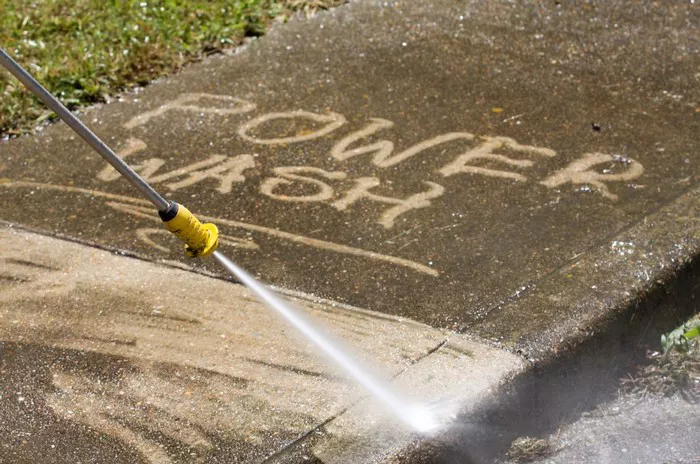Pressure washers are powerful cleaning machines designed to tackle various cleaning tasks with high efficiency. One of the key metrics that determine a pressure washer’s effectiveness is PSI, or pounds per square inch. PSI measures the water pressure delivered by the machine, playing a crucial role in its cleaning capability. However, there’s no one-size-fits-all PSI for pressure washers; the right PSI depends on several factors, including the type of cleaning task, the surface being cleaned, and the desired speed of cleaning.
Understanding the appropriate PSI for your pressure washer can enhance your cleaning experience, making tasks easier and more efficient. This comprehensive guide will walk you through everything you need to know about choosing the right PSI for your pressure washer.
Understanding PSI Needs
Factors Affecting PSI Requirements
Choosing the right PSI for your pressure washer involves understanding the specific needs of your cleaning tasks. Several factors influence the PSI requirements:
1. Cleaning Task (Light, Medium, Heavy-Duty): The nature of the cleaning task is a primary determinant of the required PSI. Light-duty tasks, such as washing cars or outdoor furniture, require lower PSI. In contrast, heavy-duty tasks like paint removal or graffiti cleaning necessitate higher PSI.
2. Cleaning Surface (Wood, Concrete, Siding, etc.): Different surfaces can withstand different levels of pressure. Delicate surfaces like wood or car paint need lower PSI to avoid damage, whereas tougher surfaces like concrete or brick can handle higher PSI.
3. Desired Cleaning Speed: Higher PSI allows for quicker cleaning, making it ideal for larger areas or more stubborn dirt and grime. If speed is a priority, choosing a higher PSI can significantly cut down cleaning time.
See also: A How-To Guide: Do Pressure Washers Heat the Water?
General PSI Recommendations
To help you choose the right PSI, here are some general recommendations based on common cleaning tasks:
1. Light-Duty (1,300 – 1,700 PSI): These pressure washers are suitable for tasks such as washing cars, outdoor furniture, bicycles, and small patio areas. They are also ideal for delicate surfaces that can be damaged by high pressure.
2. Medium-Duty (1,700 – 2,800 PSI): Medium-duty pressure washers are versatile, capable of handling tasks like cleaning decks, driveways, sidewalks, and home siding. They offer a balance between power and safety, making them suitable for most household cleaning tasks.
3. Heavy-Duty (2,800 PSI and above): For more demanding tasks such as paint stripping, graffiti removal, or cleaning large commercial areas, heavy-duty pressure washers are necessary. These machines deliver the highest power, ensuring thorough cleaning of tough surfaces and stubborn stains.
Beyond PSI: Considering GPM (Gallons Per Minute)
While PSI is a critical measure of a pressure washer’s power, it’s not the only factor to consider. GPM, or gallons per minute, measures the water flow rate, indicating how much water the pressure washer uses. A higher GPM means more water flow, which can result in faster cleaning, especially for larger jobs.
Importance of Both PSI and GPM
For optimal cleaning efficiency, it’s essential to consider both PSI and GPM. Together, they determine the overall cleaning power of the pressure washer, often represented as Cleaning Units (CU), calculated by multiplying PSI by GPM. A higher CU means more effective and quicker cleaning.
For example, a pressure washer with 2,000 PSI and 2 GPM has 4,000 CU, providing robust cleaning capability. Balancing these two metrics based on your cleaning needs ensures you get the most efficient and effective performance from your pressure washer.
Safety Considerations
Using a pressure washer comes with safety considerations, especially when dealing with high PSI. Here are some important safety tips:
1. Avoid Excessive PSI for Delicate Surfaces: Using too high a PSI on delicate surfaces like car paint or wood can cause damage. Always start with the lowest pressure setting and gradually increase it as needed.
2. Start with Lower Pressure: When beginning a cleaning task, start with a lower pressure setting and test it on a small, inconspicuous area first. This approach helps prevent accidental damage.
3. Use Safety Gear: Always wear appropriate safety gear, including gloves, goggles, and sturdy footwear. High-pressure water can cause injuries, and protecting yourself is essential.
4. Maintain a Safe Distance: Keep a safe distance from the surface being cleaned to avoid injury from high-pressure water rebounding.
See also: Do Jet Washers Use a Lot of Water: What You Need To Know
PSI Recommendations for Common Cleaning Tasks
| Cleaning Task | Recommended PSI Range |
|---|---|
| Washing cars | 1,300 – 1,700 PSI |
| Cleaning outdoor furniture | 1,300 – 1,700 PSI |
| Washing bicycles | 1,300 – 1,700 PSI |
| Cleaning small patios | 1,300 – 1,700 PSI |
| Cleaning decks | 1,700 – 2,800 PSI |
| Cleaning driveways | 1,700 – 2,800 PSI |
| Cleaning sidewalks | 1,700 – 2,800 PSI |
| Cleaning home siding | 1,700 – 2,800 PSI |
| Paint stripping | 2,800 PSI and above |
| Graffiti removal | 2,800 PSI and above |
| Cleaning large commercial areas | 2,800 PSI and above |
Conclusion
Choosing the right PSI for your pressure washer is crucial for achieving the best cleaning results without damaging surfaces. By understanding the factors that influence PSI requirements and considering both PSI and GPM, you can select a pressure washer that meets your specific needs. Remember to prioritize safety and consult with pressure washer experts if you have any doubts.
When selecting a pressure washer, also consider additional factors such as engine power, features, and whether the machine is electric or gas-powered. Each type has its advantages and suitable applications, adding another layer of consideration to your decision.

